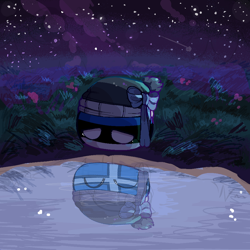I'm a beginner game designer and I'm wondering how I could improve
What makes up a well designed game?
“How can I improve at game design” (the body of your post) is a very different question from “what constitutes a well-designed game” (the title of your post).
BOTH of those questions are extremely vague and broad-ranging. TOO vague and broad-ranging.
The best I can answer is, start at the beginning. Read books. Play games and analyze their design. Learn how to ask questions the right way.
What books on game design have you read? What games have you admired for their game design? What have you designed?
-- Tom Sloper -- sloperama.com
Tom Sloper said:
BOTH of those questions are extremely vague and broad-ranging. TOO vague and broad-ranging.
Sorry about that, I was hoping to get some broad answers that would serve as pointers
Tom Sloper said:
What books on game design have you read?
You replied to one of my previous posts and I got that “The art of game design: A book of lenses” book (Been super helpful, thanks for the recommendation). That is the only book I've read so far and I've read about 150 pages of it
Tom Sloper said:
What games have you admired for their game design?
I'd say halo reach and halo wars 1 were designed really well, I really enjoyed playing them a lot. I've got some other games I'd put in that list but ill keep it short
Tom Sloper said:
What have you designed?
So far I've made one decently sized game(By that, I mean there is more than a few minutes of gameplay), besides that I've made a few really small games and I'm starting on my second decently sized game.
None
This book has the detailed and most compelling answer to your broad reaching question:
https://www.amazon.com.au/Art-Game-Design-book-lenses/dp/0123694965
The Art of Game Design: A book of lenses
Anyone can master the fundamentals of game design - no technological expertise is necessary. The Art of Game Design: A Book of Lenses shows that the same basic principles of psychology that work for board games, card games and athletic games also are the keys to making top-quality videogames. Good game design happens when you view your game from many different perspectives, or lenses. While touring through the unusual territory that is game design, this book gives the reader one hundred of these lenses - one hundred sets of insightful questions to ask yourself that will help make your game better.
I think it's often best to reverse this question and ask, “what design flaws make a bad game, and how do I avoid them?” Because all too often designers look at one or two aspects of a game they like, copy those aspects, and end up with a crappy game because they failed to look at all of the other aspects that the good game got right and their own game got wrong -- or else they end up with a clone that doesn't give the player any reason for playing it instead of the original. Good games can vary a lot, but bad games tend to all fall into the same traps. Learn those traps so that you can avoid them.
Traps include:
- The game is too generic, with no personality of its own.
- The user interface is confusing or unpleasant to use.
- Boring repetitive tasks that suck the fun out of the game.
- Dominant strategies.
- Not enough impact.
- A detailed setting or plot without “hooks” for drawing the player in.
- Not enough variety.
- Too much variety, without a unifying factor.
- The game feels too much like “work”.
…but there are many, many more. Try to identify as many as you can.
@TheBlackRattie Yeah that's a good book, I got it a few weeks ago.
Some parts can be confusing, like that venue stuff and how to use some of the other things in my games. I think ima have to read some parts a few times to get em lol.
None
gamechfo said:
I'm a beginner game designer and I'm wondering how I could improve
Hi, You have to observe top trending and popular game sgraphics to become a good game designer.
Roxdigital said:
Hi, You have to observe top trending and popular game sgraphics to become a good game designer.
This is not true. You don't seem to understand what game design is.
-- Tom Sloper -- sloperama.com










